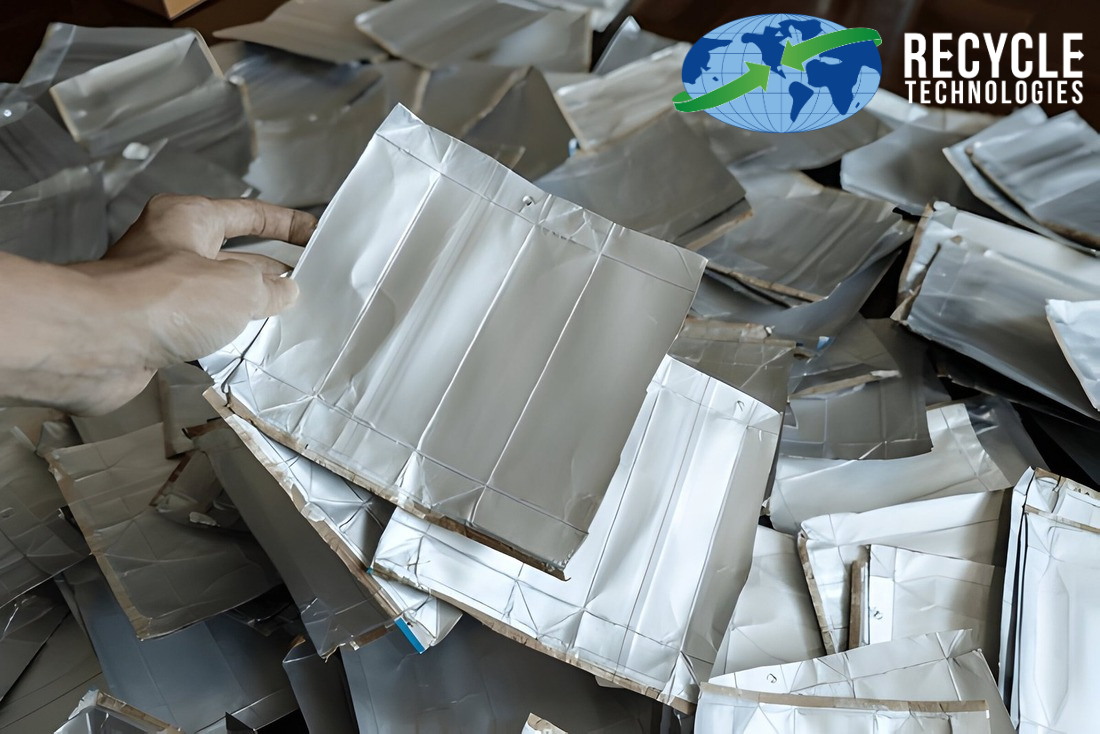Milk cartons are an incredibly common sight in kitchens everywhere. They contain everything from milk to the alternative beverage, almond milk or soy milk. But when you have poured out every last drop, the question comes up, are milk cartons recyclable? Not that simple; it depends on a few factors. Now, let's take a closer look at milk cartons: can they be recycled, how best to dispose of them, and how companies like Recycle Technologies advance sustainability in our communities.
Understanding Milk Cartons
Milk carton recyclability depends on the kind of material used in making them. Generally, milk cartons fall into two categories:
- Gable-Top Cartons: These are traditional cartons with a foldable top; one usually finds them in the refrigerated section at grocery stores. They are made basically of paperboard, then a thin layer of plastic coats it to make them waterproof.
- Aseptic Cartons: These are also known by their brand name, Tetra Pak, and include the shelf-stable cartons for soups, juices, plant-based milks, and other such commodities. Made up of multiple layers to protect their contents, these cartons have an extended shelf life without refrigeration.
Both types of cartons are designed for durability and convenience, but this mix of materials can make them a bit tricky to recycle.
The Recyclability of Milk Cartons
Yes, milk cartons can be recycled in many places. However, it doesn't mean that they go into the same bin as newspapers and soda cans. The milk carton's ability to be recycled depends on your local recycling program and the actual facilities available in your area.
What to Consider:
- Local Guidelines: Many facilities are not equipped to process the layered materials of milk cartons. Others may only accept one type or none at all. Be sure to check with your recycling provider in your area to determine if they accept both gable-top and aseptic cartons for processing.
- Proper Disposal: Before it gets to the recycling process, you should rinse your carton to allow for the removal of any remaining liquid. The reason for this is that residual content can contaminate the final product in the recycling process. Flattening the carton could also help in economizing the amount of space it occupies in your recycling bin, thereby allowing more space and handling efficiency.
Also Read: Why Recycling is important and what is its impact?
How Milk Cartons Are Recycled
While it takes more steps to recycle a milk carton than single-material products, such as glass or plastic, eventually all material used to make cartons is recyclable or reusable. Once collected, cartons are separated and their materials repurposed.
First, the cartons are sorted at the recycling facility. They are subsequently subjected to a process called hydrapulping, whereby they are mixed with water to break down the paper fibers. After that, the fibers are separated from the plastic and aluminum layers. The paper pulp can be turned into new paper products such as tissue paper and cardboard, while the plastic and aluminum can be reprocessed for other uses.
Challenges in Carton Recycling
The problem with milk cartons is that they are composed of so many layers. Because of this, they cannot be accepted by all recycling programs, and it requires special machinery to effectively separate these materials. Improvements in recycling technology are slowly making it possible to recycle even these types of products.
Companies such as Recycle Technologies are part of this evolution. It does not major in carton recycling, but its broader efforts in electronics, batteries, and many more recyclable materials help to ensure a more sustainable future. By focusing on complex, hard-to-recycle products, Recycle Technologies ensures that valuable materials are recovered and reutilized rather than land-filled.
Promoting Sustainability
But the significance of all these does not just end with waste reduction; every carton that can be successfully recycled means less raw materials that will be extracted from the earth, hence lessening our environmental footprint. More important than that, recycling also saves on energy. In such a case, less energy will be consumed to make another paper product out of paper, rather than attempting to make it from trees.
Even though Recycle Technologies focuses mostly on other areas of recycling, they support these efforts through their passion for promoting sustainability. Their work in the recycling industry is an epitome of innovative approaches toward modern waste management challenges. It's either specialized recycling programs or education and awareness; companies like Recycle Technologies drive innovation toward a circular economy.
Conclusion
So, are milk cartons recyclable? The answer is an outright yes, but with complexities. That means knowing what's taken in your area and taking the steps to make sure those cartons are put in their proper place. By doing so, you're joining millions of others working toward a more sustainable future where resources are reused, and the strain on our environment is minimized.
Companies like Recycle Technologies will spearhead this movement into a new frontier of innovation in recycling and care for the environment. Even though their work does not directly affect milk cartons, the effort they make within the larger field of recycling is vital in making a future possible where everything, no matter how complicated, is reborn.












